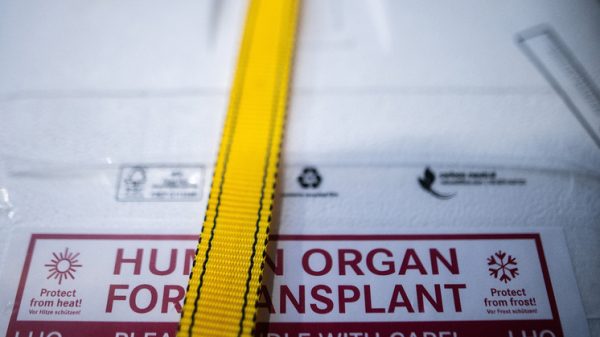 The Omagh bombing in 1998 killed 29 people and injured hundreds more. Photo: Paul McErlane/PA
The Omagh bombing in 1998 killed 29 people and injured hundreds more. Photo: Paul McErlane/PA
The UK is considering taking Ireland to the European Court of Human Rights for failing to investigate the Real IRA car bombing in Omagh, which killed 29 people 25 years ago.
< p>The move is a response to Ireland's rare cross-border case against Britain over the Heritage Act, which offers amnesty to Troubles-era murderers, including British veterans, in exchange for information about the killings.
Dublin says the Act The Legacy Act is inconsistent with human rights law because it replaces police investigations with a commission providing immunity. Ireland's claim was formally filed in a Strasbourg court on Friday.
British lawyers have drawn up plans for a «counter case» as London's relations with Dublin, which have been strained by Brexit, plunge back into the deep freeze. .
A source close to the trial told The Telegraph: “The UK Government is committed to fighting this case and is confident of winning.”
“Potential options under consideration go so far as to counter the case in Strasbourg for failure to properly investigate the Omagh bombing, which the UK government has launched an investigation into but Dublin refuses to investigate further.»
The Real IRA carried out the Omagh bombing on 15 August 1998, after the Good Friday Agreement had been signed earlier that year. The incident in County Tyrone, Northern Ireland, was the deadliest of the riots, leaving more than 300 people injured.
A major report commissioned by the government of the Republic exonerated Irish police of having failed. act on intelligence that could prevent the explosion. The 2003 Nally report found no basis for the allegations and said there was no basis for a public inquiry.
'Troubles-era crimes persistently failed to be investigated'
One source said Ireland had persistently failed to investigate Troubles-era crimes and has a long history of lobbying for amnesty for terrorists.
Chris Heaton-Harris, the Northern Ireland minister, has commissioned a study into the Irish government's actions. heritage report.
A source said: “Over the years, a wealth of evidence has emerged that Dublin has been lobbying at the highest levels for amnesty for terrorists since 1998, including fugitives.”
The source claimed that the Irish government, despite numerous promises, “has consistently failed to investigate offenses related to the riots, including those related to conspiracy.”
They accused Dublin of ignoring families' requests for information about the 1976 Kingsmill massacre and attempting to «evade requests for the extradition of terrorists».
Irish security services appear to have failed to contact defrocked father Patrick Ryan Irish Catholic priest who admitted supplying arms to the IRA, source added.
The source said there was a «strong feeling» Ireland's case against Britain was «politically motivated».
Ireland's coalition government is trailing Sinn Féin in opinion polls ahead of a general election expected later this year.
Sinn Féin, the former political wing of the IRA, is strongly opposed to the Heritage Act, as are all the main political parties Northern Ireland, including the DUP.
They argue that a conditional amnesty for accused murderers during the Troubles would deny victims justice from the IRA or British forces.
“The Tory government rushed through the legislation”
The UK government says there is little chance of a conviction 25 years after the end of the Troubles and has called on Dublin to cooperate with the new commission.
John Finucane, Sinn Féin MP for North Belfast, said: “Britain's Tory government rushed to pass this law despite clear opposition and concerns expressed by victims and families, all political parties, the Irish government, the US, the UN, the Council of Europe and human rights experts.
“The law is a flagrant violation of international law human rights and a blatant attempt to close the door on families' efforts to seek truth and justice through the courts.»
This is the second time Ireland has taken the UK to the European Court. A Strasbourg court found that 14 men were subjected to «inhuman and degrading treatment» by Britain during interrogation after Dublin brought proceedings in that country in 1971.
The Irish Foreign Office was asked. for comments.






















































Свежие комментарии